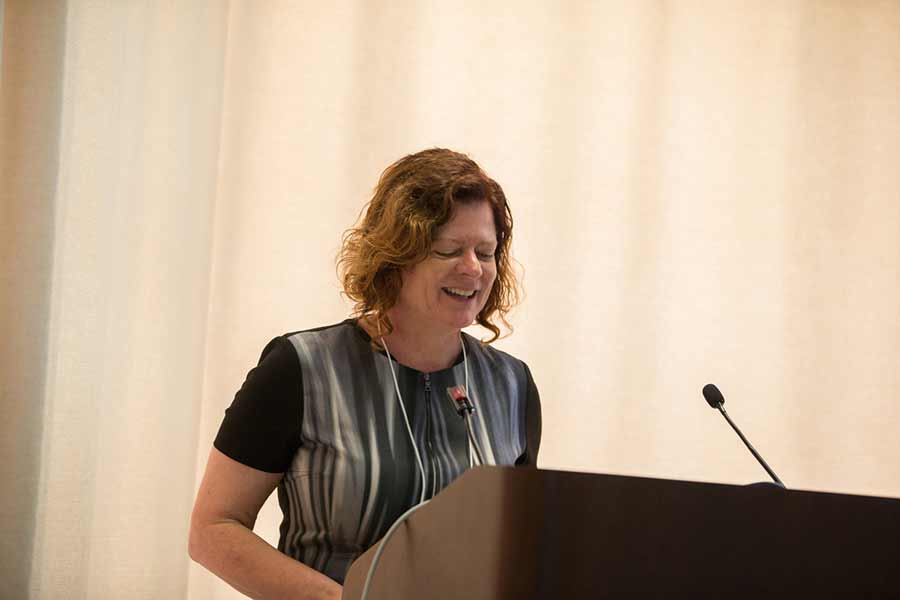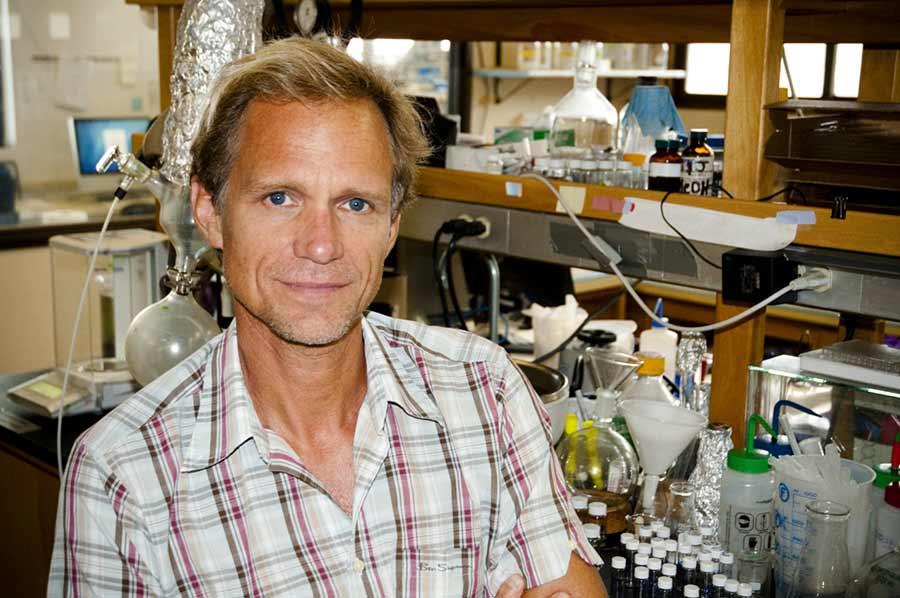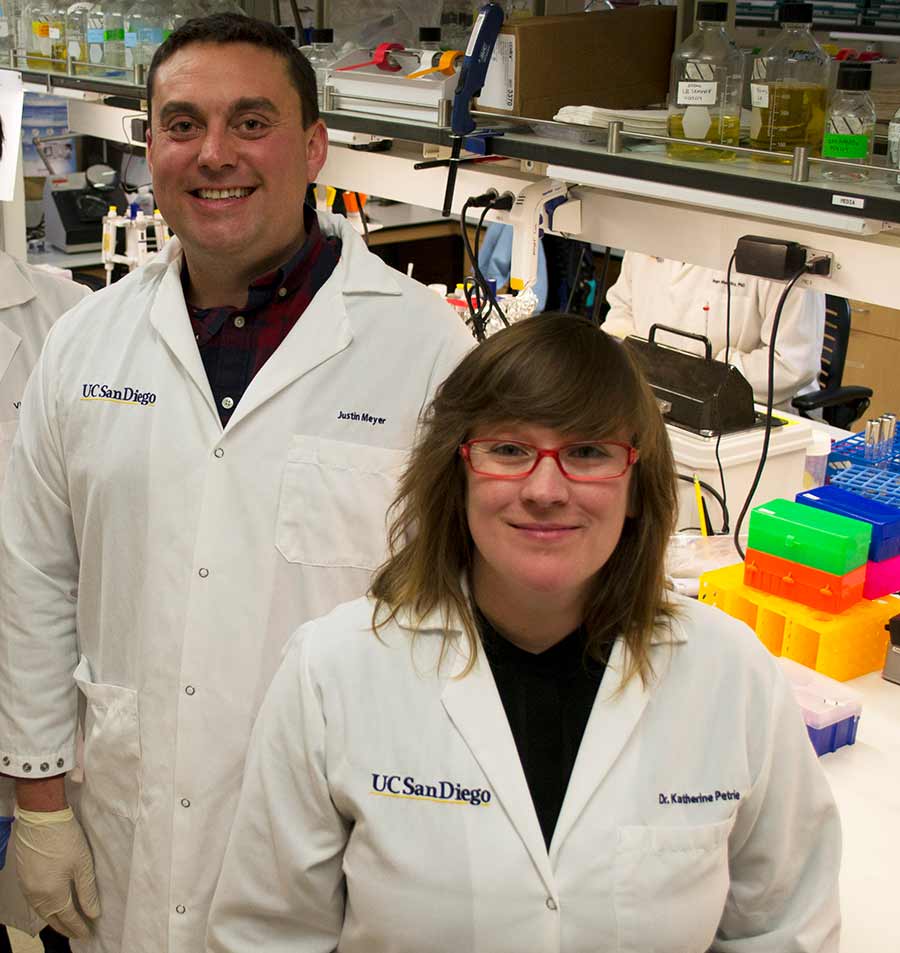By:
- Anthony King
Published Date
By:
- Anthony King
Share This:
UC San Diego Researchers Receive Funding to Address Critical Issues Facing California
Highlighted by multi-campus research, funding is part of $9M in research grants awarded from University of California Office of the President
Dystopian visions of a ruined planet and disastrous future are found everywhere in popular culture, but literature, art and theory could help create more sustainable and equitable worlds—just as microbes found in marine sediment could usher in new insight for natural drug discovery, and a new evolutionary path for viruses could lead to innovative approaches to teaching and research.
University of California San Diego faculty members are leading three separate research projects to explore these issues, each involving faculty from across the 10-campus University of California system. Additionally, UC San Diego researchers are participating in other cross-system work, each supported with funding from the University of California Multicampus Research and Programs Initiatives (MRPI).
“We are proud to lead these three projects and are excited about the new knowledge that will emerge,” said Sandra Brown, UC San Diego Vice Chancellor for Research. “With colleagues from other campuses, our innovative faculty can bring experts together from across the UC system and more effectively answer the challenging questions of our time.”
These multi-campus collaborative projects, among 16 total the University of California Office of the President is supporting in 2019, “demonstrate UC’s collective excellence and unparalleled strength as the world’s premier public research institution,” said Arthur Ellis, UC’s vice president for Research and Graduate Studies. “From agriculture to immigration, and from health to homelessness, these issues touch our lives, as can the practical knowledge and solutions developed by these UC MRPI projects.”
The winning research projects, totaling more than $9 million in grant support, were selected by peer review from a pool of 179 proposals in a highly competitive review process. The funded portfolio spans the breadth of university scholarship, including humanities, arts, engineering, and public policy, as well as biological, health, environmental, natural and social sciences.
UC San Diego-led projects include:
Speculative Futures

Shelley Streeby. Photo courtesy shelleystreeby.com.
Professor of ethnic studies and literature Shelley Streeby will lead the development of the Cross-UC Speculative Futures Research Group, as practitioners in the emergent field of Speculative Futures Studies use literature, art, and theory to create more sustainable worlds and futures.
“Building on the premise that in order to create a better world, we first have to imagine it, we envision building a cross-UC research group involving faculty, graduate students, undergraduates and community members who will use speculative cultural forms and theories to conduct collaborative research on the future of education, ecology, gender, sexuality, race, and addressing inequalities in California and the world,” Streeby, the director of the Clarion Science Fiction and Fantasy Writers Workshop at UC San Diego, said.
The researchers will focus on four broad areas: (1) Ecology and Climate Change, (2) The Future of Schooling and Education, (3) Transnational Divisions and Connections, and (4) Race, Labor, and Artificial Intelligence, in part foregrounding the histories, ideas, scientific practices and futures envisioned by people of color, women and Indigenous people.
Initially centering on UC San Diego (host), UC Riverside, UC Irvine and UC Santa Cruz, the group will serves as a platform for system-wide collaboration among faculty, students and the community who aspire to create and build sustainable, non-dystopian futures.
Developing a New Paradigm for Natural Product Drug Discovery

Paul Jensen. Photo courtesy Scripps Institution of Oceanography.
Paul Jensen of Scripps Institution of Oceanography will employ methods recently developed in the Jensen lab to advance the field of biomedicine. Working with the MacMillan lab at UC Santa Cruz and with researchers at UC San Francisco, Jensen and colleagues will use these novel methods to capture marine microbes and screen them to provide critical information about molecules that could be useful in cancer-treatment research. This research will provide new insight into the types of microbes that can be targeted for drug discovery.
Materials generated will become available for screening by other UC researchers through the UC San Diego Center for Compound Resources. This approach has the potential to yield compounds that can be taken through human clinical trials within the UC system.
This project represents a new, multidisciplinary collaboration that seeks to transform the traditional approaches used for natural product drug discovery. It includes extensive graduate and undergraduate training and has the potential to advance human health and create technologies that benefit the California economy.
Exploring a mechanism for viral host range evolution

From left, Justin Meyer and Katherine Petrie. Photo courtesy Division of Biological Sciences.
In 2018, biologists Justin Meyer and Katherine Petrie announced the discovery of a new path of evolution through which viruses adapt and exploit their hosts.
Now, the researchers are seeking to find out how many other viruses employ this evolutionary strategy. Funded through an MRPI grant, Meyer and Petrie will be testing their finding through collaborators at other UC campuses with libraries of viruses.
These include UC Berkeley’s Britt Koskella, who offers a large collection of viruses that infect bacteria known as bacteriophages, or “phages.” A second collaborator, Jordan Moberg-Parker at UCLA, teaches a class in which students collect phages from a variety of environments, including their own skin.
“This aspect of the proposal is a two-for-one,” Meyer said. “The students will gain experience with testing a new, exciting hypothesis for viral host-range expansion and we will be able to test our hypothesis on many more viruses than if we had to conduct the tests in my lab alone. This was an innovative element of our proposal that uses new integrative approaches for teaching and research.”
Hosted at other UC campuses, UC San Diego researchers will also participate in MRPI-funded studies that include exploring effective management strategies to try to save the citrus industry in California and around the world—a $1.1 million grant—and creating a new, multi-dimensional narrative of California history that includes the voices and perspectives of not only California settlers, but also the Native American and Mexican American communities that helped lay the foundation for the state’s development.
See the full list of the 2019 MRPI grantees and learn more about the awards process.
Share This:
You May Also Like
Stay in the Know
Keep up with all the latest from UC San Diego. Subscribe to the newsletter today.



